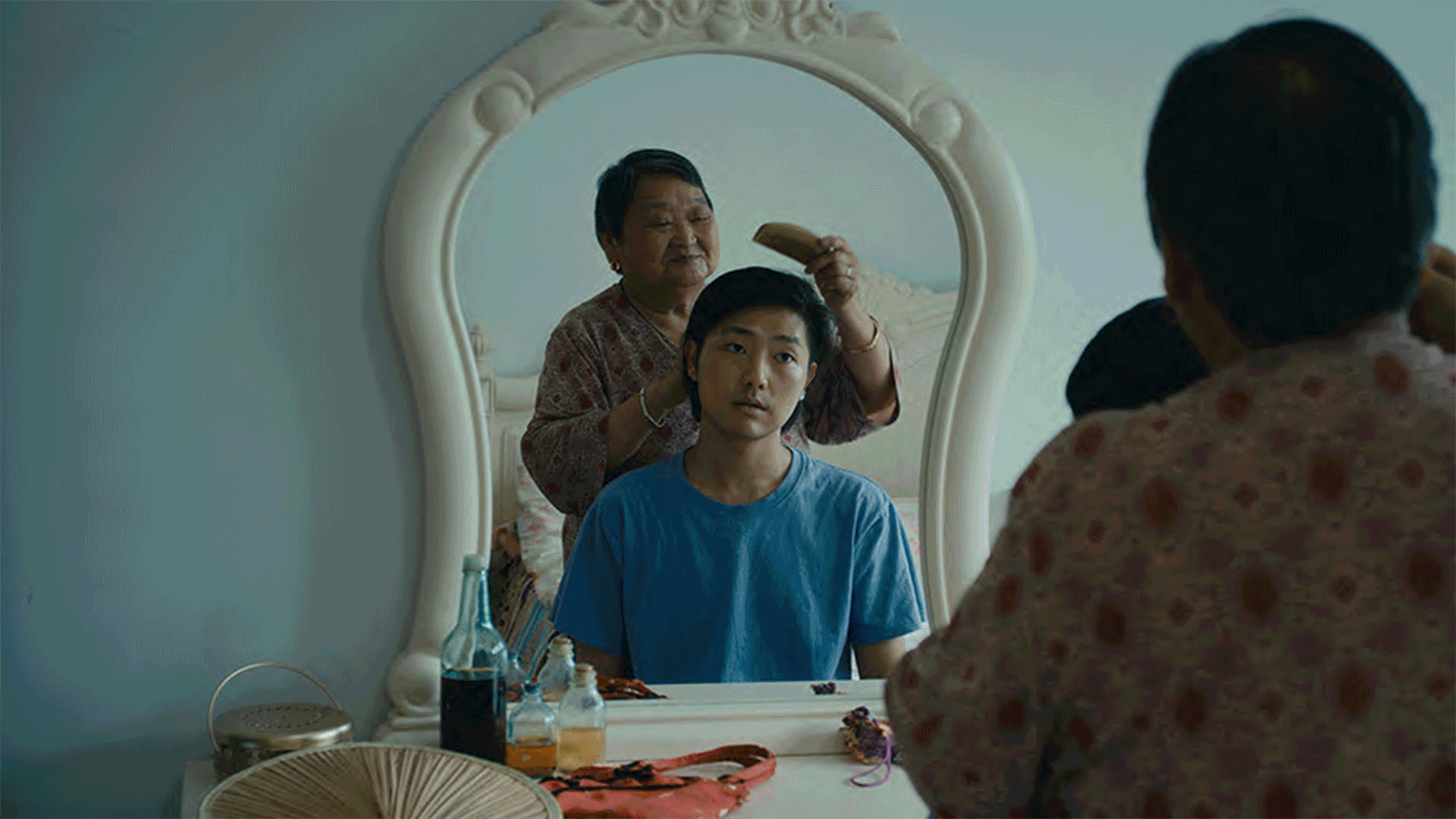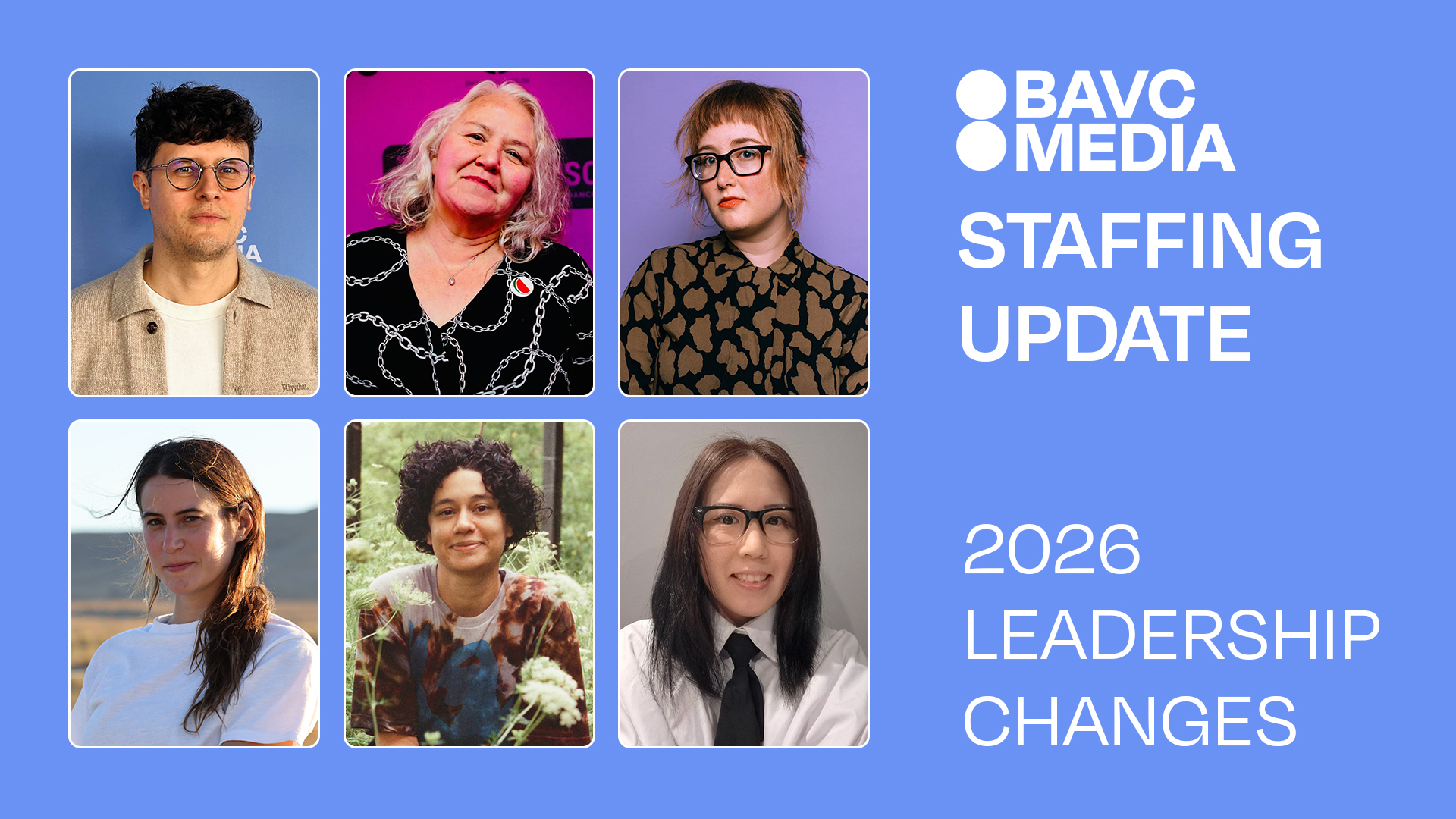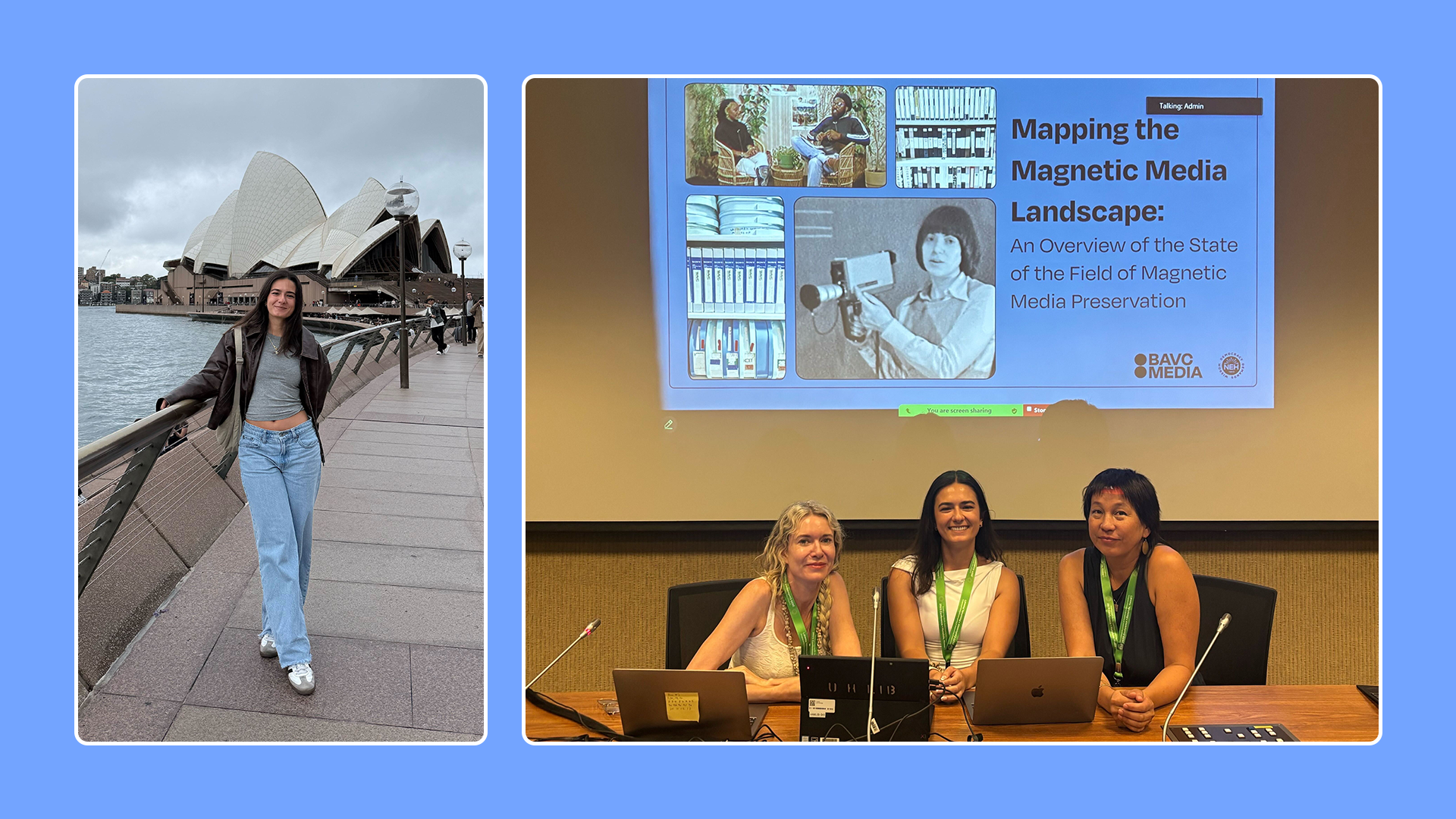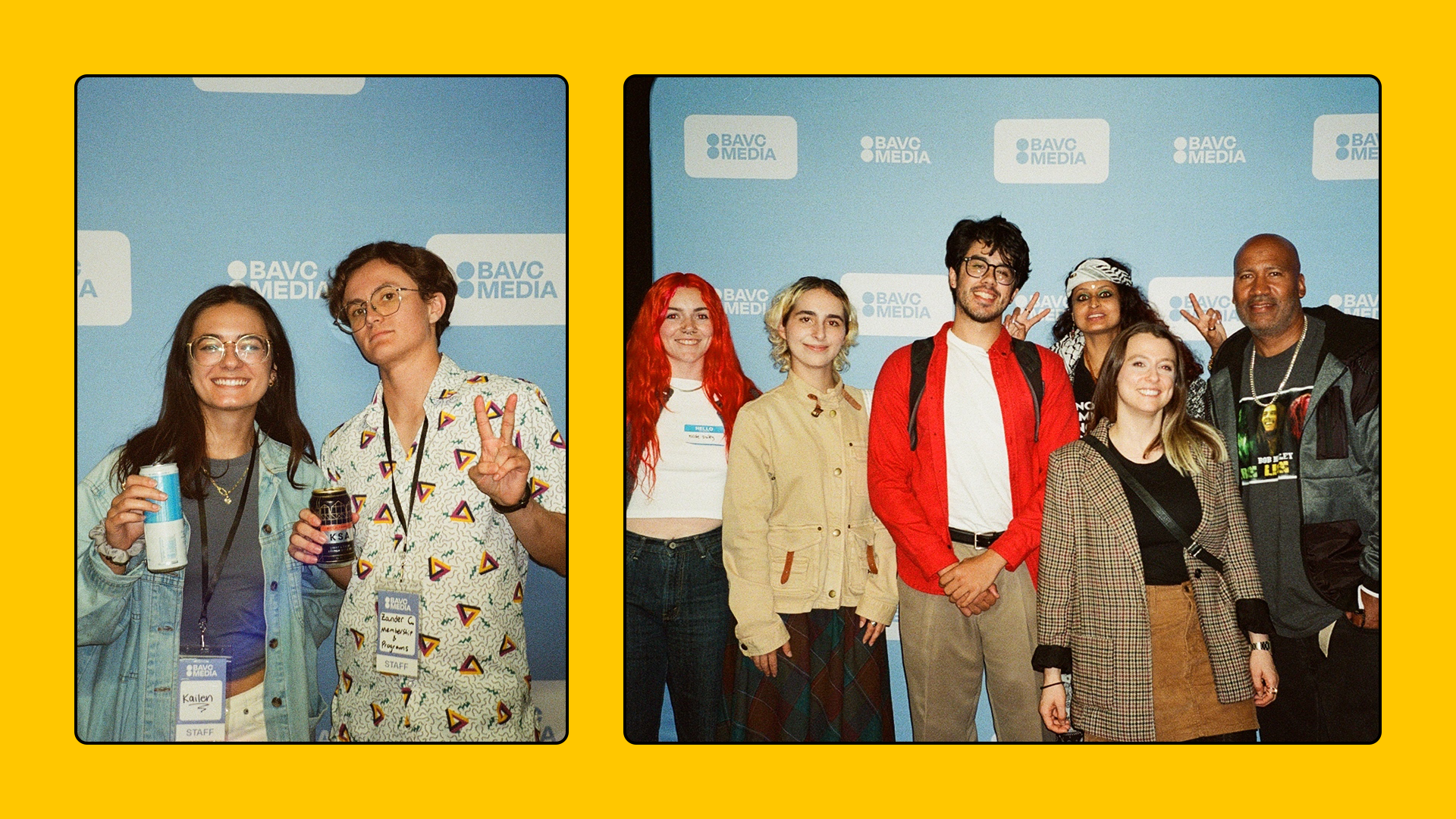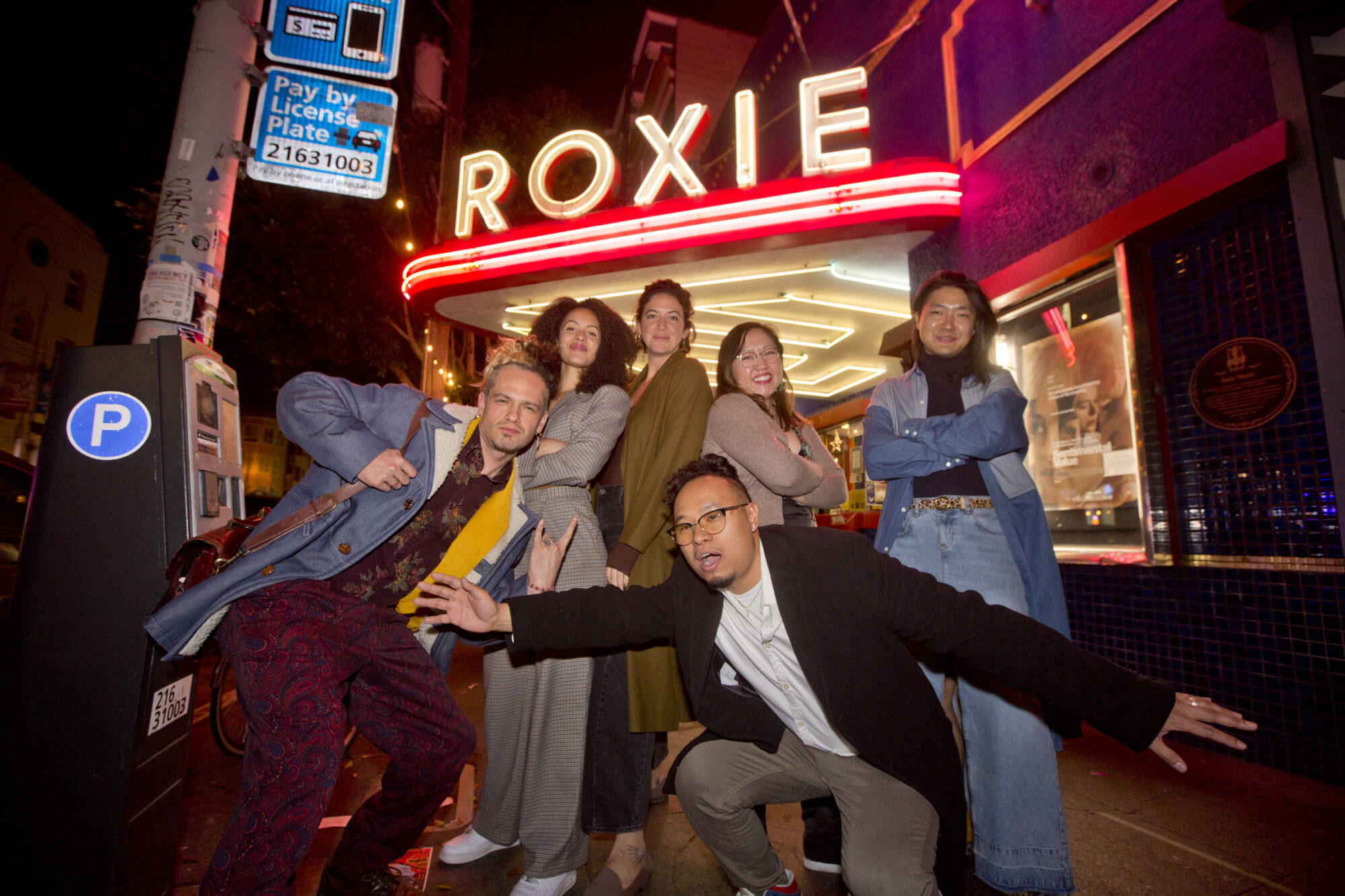Provisions: Impact Filmmaking with Maya Cueva and Leah Galant
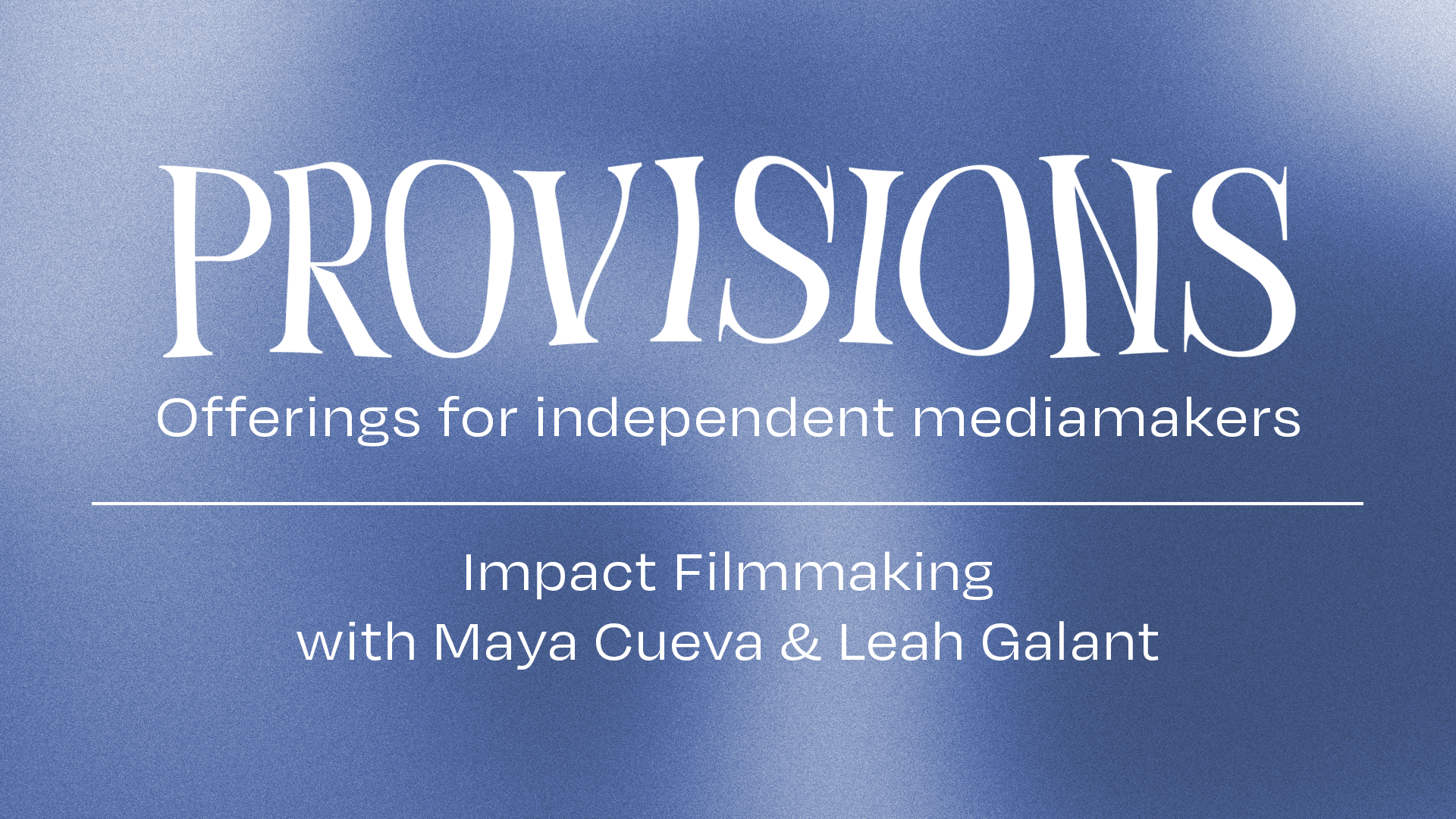
PROVISIONS is a series from BAVC Media, featuring interviews, advice, and insights into the creative process from our mediamaking community.
The documentary On The Divide tells the stories of three Latinx individuals living in McAllen, Texas. Despite their differing viewpoints, they share an unexpected connection—the last abortion clinic on the U.S./Mexico border. We spoke with directors Maya Cueva and Leah Galant about the process, challenges and rewards of creating a documentary with social impact.
You can watch On The Divide here.
This interview was conducted in August 2023 and has been edited for length and clarity
Documentary has a long history in general of framing or reframing different social justice movements. What’s the benefit of using documentaries and activism versus short-form news stories?
Maya: I think what’s so incredible about documentaries is that you’re able to go deep into a story and humanize the people that you’re following. Leah and I didn’t want to create a film that was just preaching to the choir. We didn’t want to just make an objective film. We wanted the people we were following to lead the stories as much as possible and tell their own truths, and be in charge of their narratives. You see that they go through so many different transformations. Although news is really powerful and important, it can be pretty limiting because you might not be with the people that long, right? Or you might come in and leave and not know you’re creating a potentially harmful narrative about the place. We were able to show these three people throughout these years of their lives and also just show how they’re complicated in many ways.
One of the Organizations that we partnered with in our impact campaign was named Trust Women. They were able to use the film to actually mobilize voters in Kansas to vote in favor of an abortion bill. So that’s very exciting.
How important is the timing of release when making a social-impact film?
Leah: There’s a lot of films that I think are predicated on political action and elections and legislation. And for us, while there are moments that our characters touch upon those themes, we were interested in a story that could be evergreen and what people experience on a daily basis. When you think about any issue that’s compounded by race, gender, sexuality, economic status, immigration status, and how something like receiving reproductive health care, healthcare in general is more complicated depending on your relationship to those things. I think that’s a universal story.
As Maya said, for us to center Latinx and Latina stories, that’s something that I don’t think the reproductive rights movement does often, centering women of color. What’s important for us is to create something more of an evergreen story as opposed to something that’s following one piece of legislation. I don’t know the number this year, but a couple of years ago it was like over 150 anti-abortion pieces of legislation were introduced to the legislature only by mid-year. And that onslaught of anti-choice legislation, unfortunately, will not stop.
It still continues even without Roe. And for us, we wanted to make something that can speak to really any moment in time, while also acknowledging that there are organizers that have been warning us on the ground that just were ignored for so long, that they have been following this issue and have raised the alarm. People don’t often listen to that region. People who are most vulnerable always are not centered. And that’s something that we wanted to do is center those people.
What responsibility do you think filmmakers have to communities and the people whose stories they tell?
Maya: I think filmmakers have a lot of responsibility to the people that they’re filming, the communities that they’re filming in. We definitely have stayed in contact with all three of our participants, as well as organizers that we met along the way who didn’t ultimately end up in the film like South Texans For Reproductive Justice. I think everyone is going through a lot, especially organizers on the ground. So we constantly, whenever we talk about this film and continue to push out this film, we just make sure to let people know that these organizations need our help the most and they need our resources. It’s just a really hard time. Other organizations like La Frontera Fund, there are so many organizations around Texas that continue to fight and just need our support as much as possible.
Speaking of partnering organizations what strategies did you use to try and find organizations and what did those partnerships look like?
Leah: Full credit goes to our impact partner and producer. They work with filmmakers who are making social justice-driven work and try to find partners for the eventual release and impact campaign. They worked with our existing relationships that we had developed over the years. They reached out to those organizations and then also new ones that they felt could be a good fit based on existing partners. I think over 30 organizations were reached in our impact campaign that were official partners. And I think many more that tangentially benefited from the film and their communities. Peace is Loud really led the effort in our impact campaign to make sure that it reached the right people, which is great. We have a report too that you can see.
Maya: We were able to create a healing guide that’s in English and Spanish and can be used as a discussion guide for the film. And we also were able to raise enough money to give monetary support to each of these organizations, because we wanted to be able to make sure that they could use the film as a resource for their fundraising efforts. But also, we wanted to make sure that they got resources as well through funding. We’re really excited that the film was able to provide that.
We had created a lot of relationships throughout the seven years of filming On The Divide. So it was really important to us from the beginning to make sure that we were securing and creating trusting relationships with these organizations. I recommend any filmmaker who’s trying to make a social issue film that you try to make connections and relationships with the community that you’re filming in so that you’re not just coming in and trying to tell your own story and then leaving. Like, how can you really work with the community as you tell your story? That’s so important. From the beginning, we really prioritized that.
It really helped us in the impact campaign once Peace Is Loud came in because many of the organizations they reached out to had already created relationships with. So it was very much a seamless progression to then work with them building out of the impact campaign and trying to make sure that our film had the most impact rather than, making the film and then trying to, like, reach out to all these organizations at the back end when they’re like, who are you? What is this film? It just wouldn’t have worked.
How do pieces like discussion guides help audiences view it in a more engaged way?
Maya: If you see the Healing Guide, it starts with a letter from me and Leah. We were able to provide questions for the discussion. A lot of how the guide is used is for community screenings or times that we might not be able to be there to do a Q&A or things like that. People have really used it as a guide because there’s just so much going on in the film that I think that it can really help viewers kind of understand where each of the participants is coming from and kind of the overall context of the film as well.
How did you measure the success of your film?
Maya: I think in general, we’ve just heard a lot of positive feedback from the organizations that we worked with that they were able to use it as a tool and a resource to help expand their organization and expand the work that they’re doing.
I think Kansas was a really big win. So we’re hoping to continue to have the film be used as a resource in that way. We’ve also had international screenings. Leah went to one in Poland that was incredible because Poland is dealing with very similar restrictions to abortion rights as we are possibly even worse in many ways.
I went to Leeds as well. We went to Greece too, so it’s been really exciting to be able to go around the world with this as well and see what other people think. We were able to do one in McAllen, which was really exciting with the participants in the film, with Denise and Ray and Danny and Mal, they were all present.
I feel like since the film has been out, it’s given us a lot of like, fuel and a lot of energy. And I can’t speak for Leah, but I feel like we both have like, batteries in our backs, like we’re ready to go. We’re going to be talking about this film for years. This is also our first feature film. A lot of exciting things have come out of this.
Leah: Yeah, we screened the film in Poland November 2021. It was just days after a major news story of a woman who attempted to receive an abortion in Poland but died of not being treated properly and died of sepsis. I can’t remember the exact details, but it was horrific. In Poland, getting an abortion is illegal. This was before Roe v Wade happened in the United States. It was sort of looking at how the reactions in the audience were sort of looking at how similar the landscapes were than they were different. That was a really interesting moment of international solidarity around reproductive rights.
Someone in the film has a change of heart about being pro-life. Did you hope audience members would go through a similar journey?
Maya: The goal was definitely to try to reach people who are like Mercedes who were raised a certain way or didn’t know how they felt about it, maybe they were on the fence about abortion rights, but were able to see themselves in Mercedes and possibly also be able to see like, oh, wow, I maybe want to change my mind because of that. What we’ve heard from is people saying that they were able to show their religious grandmother this film and that they were able to understand what Mercedes went through, which is like a really big win in a lot of ways. Because we were trying to make a film that would create an atmosphere where you could sit down with a family member who might be very against abortion and we wanted to be able to create a viewing experience where people would be able to really understand Mercedes’s transformation and what she went through.
A lot of people have felt very close to Denise as well. This storyline around her, you know, being a mother and still fighting for her choice. We were able to screen in New Orleans and New Orleans only has one abortion clinic. One woman came to the screening, she came up crying at the end and told me how moved she was and how she, you know, like, wanted other people to see it.
It feels really exciting and moving to see how many different people around the country have been impacted. I think that a lot of people who have maybe come in with the like, I’m a pro-choice person were able to see like, oh, maybe I should be approaching this topic a little differently, or how can I reach out to people who don’t share my same opinions and get them to understand that choice is necessary? So I think in both ways it’s sort of helped people, which is moving for us to see and was the ultimate goal.

